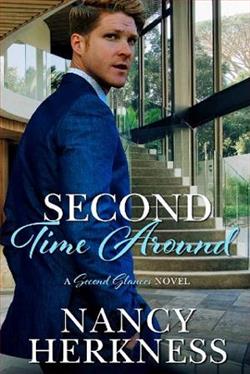Page 70 of The Enduring Universe
“We are all dead sooner or later,” Dhruv said flatly. He stoodup, and everyone turned their eyes on him. “We are all living with risk now. Reality’s first laws are already changing.”
He approached the closest bio-nodes, swiped on the glassy screen a few times, pressing buttons, then stepped back.
The images all over the solarchamber changed. Ahilya could still see the dome of the shimmering dust, this time more clearly than before, but she also saw the jungle beyond. The trees that had until recently been stationary were now quaking as though an earthrage were imminent. The landscape shrunk, and Ahilya realized it wasn’t merely the trees quaking. Dhruv was somehow capturing the skies too, and a distortion cracked the blue sky, a splitting in the middle of the air like lightning, but black, tiny cracks over and over again. Images flickered again, of mountains and valleys that had formed indiscriminately after the battle with the Virohi, and a roaring, painful sound reverberated through Ahilya’s bones. Irshar and the Garden stood in the middle of this, but the images shuddered, several bio-nodes blanking out as undoubtedly drones fell from the air before newer ones replaced them.
Naila exchanged a startled glance with Ahilya. They were both thinking of the same thing. Planetrage.
“Dhruv’s drones have reported strange events,” Chaiyya said. “Fire breathing within water vapor. Dust translating into leaves then phasing back. Weather morphing in seconds, and gravity failing with rocks floating on their own. The city Iravan built is holding, much like the habitat here, for whatever reason. We are hedging our bets for survival—which is why only volunteers are allowed to go to the new city.”
She left the rest unsaid. If humanity had a chance, they could not all be caught in Irshar. This way, there could be some survivors. If they survived the planetrage and the subsequent dissolution, they could save the species.
Ahilya looked away from the bio-nodes, her head splitting. She was so tired now. How much devastation could the human mind take? She thought of her sister, and Arth and Kush, and the children of the ashram. She could not fathom it. The end of everything.Maybe this is what it was like, she thought.Back when they were debating whether to fly away or to stay down here. Maybe that’s why some of them chose to fly, and the others to build habitats. Not a disagreement like we thought, but a desperate hedging of bets.
“Did you know about this?” Basav asked her quietly.
She could not look up. “Yes,” she whispered. “I—I suspected it. Iravan and I talked about it.” In halting words, she told the others of what she’d been discussing with Iravan before Darsh had begun his unity with the yaksha. “If the Moment breaking has caused this, then only the repair of the Moment can fix it. But—”
But Iravan had wanted the Virohi first, driven in his hate and rage. She had the means to destroy them, and she and her husband were still standing on opposite ends, holding their entire species hostage, arguing the fulfillment of his capital desire against what she thought was right.
In the Etherium, she felt the Virohi’s terror. The wrongness of sacrificing them, when they had grieved the Moment in a way none of them had, filled her with a queasiness. Who were they, really? What was their true form? What would finally release them—save them in the manner they needed to be saved?
She wanted to tell the others what she was thinking. She wanted them to help her.
But Ahilya couldn’t form the words.
These people hated the Virohi; they hated her. They would not listen. They would think her corrupted if she argued the Virohi’s case now—when the answer was so obvious to them that the cosmic creatures’ destruction could end their own misery. She did not knowthe wisdom of defending the Virohi anymore. The Virohi were already giving her more power and access than the others could know. Perhaps this new ability she’d found in her Etherium was simply an unconscious function of overwriting. Yet Ahilya could sense that the Virohi in their advanced, evolved state were trying to tell her something. The knot of roots in her chest tightened over her. The overwriting, the repair of the Moment, their fear, this was all connected in some way. She felt the puzzle pieces circling her, but they were too hazy, too senseless. She could not share these arbitrary notions with the others.
“We need Iravan,” she said, her voice small. “Here with us, helping us. But I—I still don’t know where he is.”
“Fortunately, I might have an idea.” Dhruv beckoned to her, and waited until she had arisen and joined him. He tapped at one of the panes of the solarchamber, and the whole thing turned black then whisked up. Watched by the other councilors, he led her to a rocky wall, pointed at it, then stepped back.
It took Ahilya a moment to understand. This was the same wall where Iravan had disappeared. She stared at it, then back at Dhruv.
“Desire it,” he said softly.
Ahilya touched the wall with trembling fingers. She closed her eyes, picturing Iravan in her mind, and between her brows, she thought she caught a glimpse of him. Just a shadow and silver light, glinting from between the leaves.
She focused her desire, like she had done so many times. The tree within her mind bloomed. Images seared her mind, Iravan on a staircase, rock and earth pouring upward around him, an underground labyrinth, a cavity in the rock.
Then the rock face in front of her split open and the images subsided.
Dust and earth rained down on her face, and she stepped back as a long crack separated the blank wall, only big enough for her to squeeze through. Two sungineering drones zipped past her at once, entering the darkness first.
Dhruv nodded, unsurprised. “As always,” he said, “he will speak with you, and you alone.” He stared at Ahilya, and in his gaze she felt the weight of every other person’s fear and judgement. “You can get through to him. Will you go?”
42
IRAVAN
Iravan gave himself to darkness.
He fled the Garden, everpower carving a path for him, and he blindly followed, carrying Darsh’s body. Rock, earth, root, all of it exploded, leaving a maze behind—but he continued to flee, far from them all. The plates of the planet shifted as Iravan hurtled deeper into unknown mountains. Once a creature of the skies, now he folded the earth around him, escaping, but he didn’t care where he was going. He only knew he needed to leave before he hurt someone else. He needed to lock himself away, even if it meant he would never see daylight again. A treacherous, rough path opened in front of him, and he placed one foot in front of the other, long legs moving fast, scrabbling, climbing, sharp, jagged rocks tearing at his clothes and skin, leaving bloodied marks behind. He moved until he could move no more. Until Darsh’s weight in his arms grew heavy, and his entire body trembled.
Iravan sank to his knees, surrounded by cold rock. Light gleamed in this pit, radiating from his skin. The cave he’d trajected was only wide enough to hold him and the body but no more. Loose rocksrained down on his hair, and he heard the furious crash of rock in the earth.
Here, all was silent.
He brushed Darsh’s limp hair aside. He touched his cold body with his fingers, cupping the boy’s cheek. Darsh’s eyes reflected no light. He looked so much younger than fifteen, just a child who had trusted the wrong man. Who had worshipped a monster. Tears cascaded down Iravan’s face, and his chest hurt. Holding the boy close to him, Iravan wept, careening into disbelief then horror.















